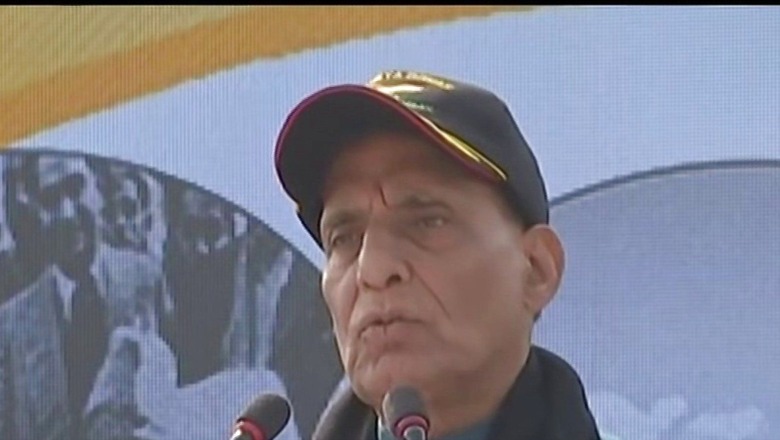
views
India does not believe in a world order where a few countries are considered superior to others, Defence Minister Rajnath Singh said on Thursday and noted that the possibility of a global framework could be envisaged if security becomes a truly collective enterprise.
In an address at the National Defence College, he also sounded a note of caution about cyber warfare and said it has increased the vulnerability of critical infrastructure.
“I would like to tell you that conduct of our strategic policy should be moral. India does not believe in a world order where few are considered superior to others,” Singh said.
“India’s actions are guided by the very essence of human equality and dignity, which is a part of our ancient ethos and its strong moral foundations, give us our political strength. Even our freedom struggle was based on the bedrock of high moral values,” he noted.
His comments came amid increasing concerns over China’s aggressive military posturing along the Line of Actual Control (LAC) as well as in the Indo-Pacific.
If security becomes a truly collective enterprise, “we can think of creating a global order which is beneficial to all of us”, the minister said.
Key infrastructure like power generation and distribution is increasingly becoming more complex and there is need for dealing with such challenges effectively, Singh said.
The energy sector, he added, is one of the main targets of cyber-attacks but it is not the only one; transport, public sector services, telecommunications and critical manufacturing industries are also vulnerable.
Singh emphasised that national security should not be considered a “zero-sum game” and that there is need to create a win-win situation for all. “We should not be guided by narrow self-interest which is not beneficial in the long run, but by enlightened self-interest which is sustainable and resilient to shocks,” he said.
The defence minister said a strong and prosperous India would not be built at the cost of others. “Rather, India is here to help other nations realise their full potential.” “Our increasingly interconnected financial systems are also at great risk. You all must be aware that in February 2016, hackers targeted the central bank of Bangladesh and tried to steal 1 billion dollars. While most transactions were blocked, 101 million dollars still disappeared,” he said.
“This was a wake-up call for the finance world that cyber risks in the financial system had been severely underestimated. Today, the assessment that a major cyber-attack poses a threat to financial stability is not a question of if, but when.” According to Singh, information warfare has the potential to threaten political stability.
“There is no account of how much fake news and hate material is likely to be brought in society through social media platforms. The organised use of social media and other online content generation platforms is being used for engineering the opinion or perspective of the masses,” he said.
“The deployment of information war was most evident in the ongoing conflict between Russia and Ukraine. Throughout the conflict, social media has served as a battleground for both sides to spread competing narratives about the war and portray the conflict on their own terms,” he observed.
Read all the Latest India News here















Comments
0 comment